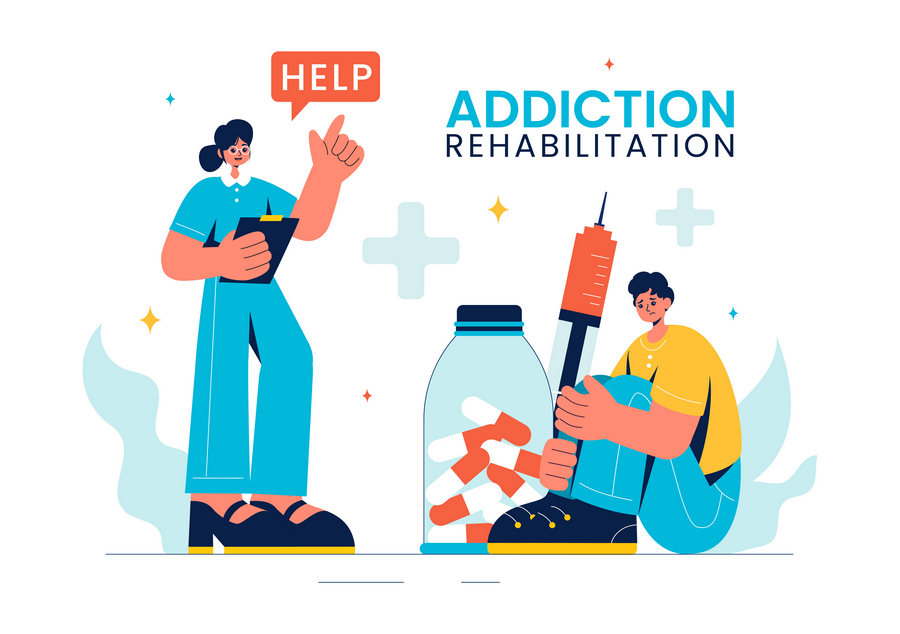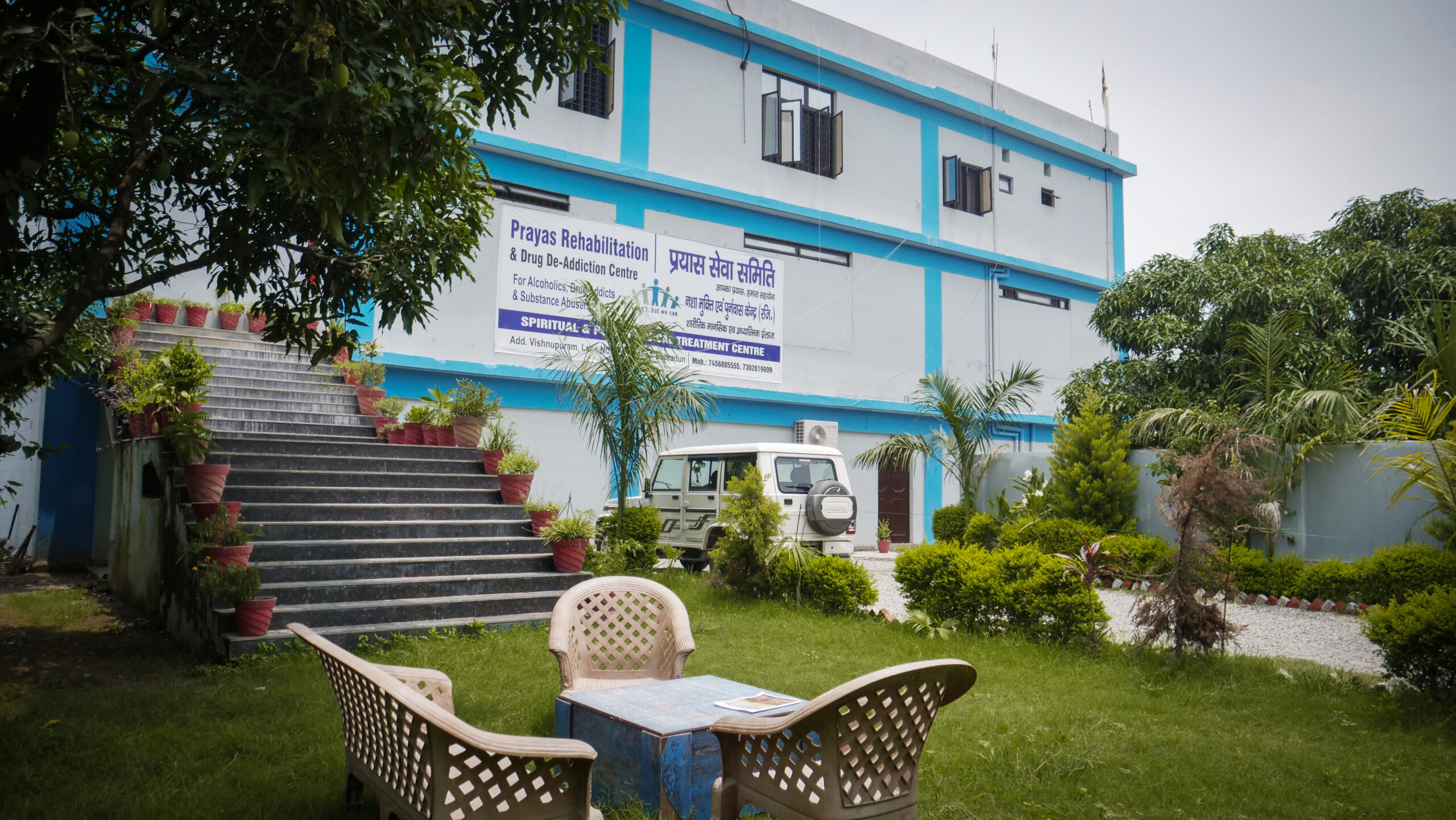What Makes an Addiction Recovery Program Truly Effective?

An Addiction Recovery Program is not just about detoxing the body; it’s a comprehensive path toward healing the mind, emotions, and behaviors that lead to substance use. Effective recovery programs provide long-term, individualized care, helping individuals rebuild their lives with the support of therapy, structure, and community. Whether someone is battling alcoholism, drug addiction, or behavioral dependencies, a well-designed Addiction Recovery Program can create lasting change and prevent relapse.
Facilities like Prayas Sewa Samiti focus on creating such structured yet personalized programs. Their approach emphasizes holistic care, helping patients navigate every step of the recovery journey. As a trusted name among the best rehabilitation centers in Dehradun, the center blends clinical expertise with compassionate support to foster successful recovery.
Core Principles of an Effective Addiction Recovery Program
To truly work, an Addiction Recovery Program must go beyond quick fixes. It needs to focus on the root causes of addiction and equip individuals with the tools needed for lifelong sobriety. Here are the essential principles that define successful programs:
1. Individualized Treatment Plans
No two individuals face addiction in the same way. Effective programs begin with a thorough assessment of the individual’s history, mental health, and physical condition. A personalized treatment plan aligns therapies with the unique needs and goals of the client, making the Addiction Recovery Program more impactful.
2. Medical Supervision and Detox
The first step in most recovery journeys is medical detoxification. A medically supervised detox ensures safety during withdrawal and prepares individuals for further treatment. This phase lays the foundation for the rest of the Addiction Recovery Program.
3. Evidence-Based Therapies
Cognitive Behavioral Therapy (CBT), Dialectical Behavior Therapy (DBT), and Motivational Interviewing (MI) are among the scientifically backed treatments used in effective programs. These therapies help individuals understand their triggers and reframe negative thought patterns, crucial components of any effective Addiction Recovery Program.
4. Family Involvement and Education
An impactful Addiction Recovery Program often involves family therapy and education. Engaging family members in the healing process helps mend strained relationships and builds a supportive environment that strengthens recovery at home.

Holistic Healing Approaches
Healing from addiction involves more than just treating symptoms. It requires addressing every part of a person’s well-being. Holistic strategies have proven to enhance the success of any Addiction Recovery Program.
1. Mind-Body Integration
Activities such as yoga, meditation, and mindfulness therapy encourage clients to reconnect with their bodies and calm their minds. These practices foster emotional regulation and stress management, reinforcing the foundation of the Addiction Recovery Program.
2. Nutritional Counseling
Substance use often depletes the body’s essential nutrients. Nutritional support ensures individuals regain physical strength and balance, which is essential for maintaining energy and mental clarity throughout the Addiction Recovery Program.
3. Creative and Recreational Therapies
Art, music, dance, and recreational activities are integrated into many programs to provide a therapeutic outlet for emotions. These elements offer clients a healthy means of self-expression and emotional release, enhancing engagement in the Addiction Recovery Program.
Life Skills Training and Vocational Support
Reintegration into society is one of the most crucial stages of recovery. An effective Addiction Recovery Program will always include life skills training, helping individuals learn how to manage daily responsibilities, relationships, and finances. Vocational training and educational opportunities also give recovering individuals the tools to pursue meaningful employment or education post-treatment.
These skills empower clients to live independently and confidently, reducing the risk of relapse by establishing a sense of purpose beyond treatment.
Peer Support and Community Connection
Being part of a recovery community provides encouragement and accountability. Group therapy, peer mentorship, and support groups like NA (Narcotics Anonymous) or AA (Alcoholics Anonymous) are core features of a successful Addiction Recovery Program.
Peer support offers shared experiences, reduces feelings of isolation, and fosters long-lasting bonds that continue even after completing the program.
Relapse Prevention Planning
An effective Addiction Recovery Program must prepare clients for challenges post-treatment. Relapse prevention involves identifying triggers, developing coping mechanisms, and creating a realistic plan for maintaining sobriety. This plan includes:
-
Continued outpatient therapy
-
Attendance at support group meetings
-
Access to emergency support during crises
-
Strategies for managing emotional and social stress
By emphasizing aftercare and relapse management, programs give individuals a higher chance at sustained recovery.
Measuring Success in Addiction Recovery Programs
Success in an Addiction Recovery Program is not only about staying sober. It includes improvements in physical health, emotional stability, social relationships, and overall life satisfaction. Regular progress tracking and personalized milestones help assess how well the program is working.
This results-driven approach ensures clients and clinicians can make informed adjustments, increasing the program’s effectiveness over time.
Why Choosing the Right Center Matters
The environment in which recovery takes place can greatly influence its success. The best rehabilitation centre in Dehradun offers structured programs, professional staff, and a calm, nature-friendly environment—ideal for deep healing and reflection. Access to personalized care and a wide range of therapies ensures that every aspect of recovery is addressed.
A well-equipped center not only treats the addiction but also nurtures the individual as a whole, increasing the likelihood of long-term recovery.

The Role of Aftercare in Sustaining Recovery
Aftercare is a continuation of the initial treatment that helps clients stay committed to their goals. An effective Addiction Recovery Program provides:
-
Access to therapists or counselors
-
Ongoing group meetings
-
Alumni events and networking
-
Crisis intervention resources
This structured support system ensures that individuals are never alone in their journey, even after formal treatment ends.
Commitment to Change: The Client’s Role
Even the best Addiction Recovery Program can only be effective if the individual is committed to change. Recovery demands effort, patience, and persistence. Clients must actively participate in therapy, practice learned skills, and seek support when needed.
The willingness to embrace new habits, perspectives, and routines is a significant contributor to successful outcomes.
Conclusion: Take the First Step Toward Healing
A truly effective Addiction Recovery Program combines medical care, psychological support, and personal growth to guide individuals toward a drug-free life. It addresses the root causes of addiction while equipping individuals with tools to thrive in sobriety.
At Prayas Sewa Samiti, we provide a comprehensive and compassionate approach to healing. With expert guidance and a nurturing environment, we help clients embrace the recovery journey with confidence. As part of the best rehabilitation centre in Dehradun and in active collaboration with trusted nasha mukti kendras across India, we are dedicated to empowering individuals to reclaim their lives and achieve lasting freedom from addiction.